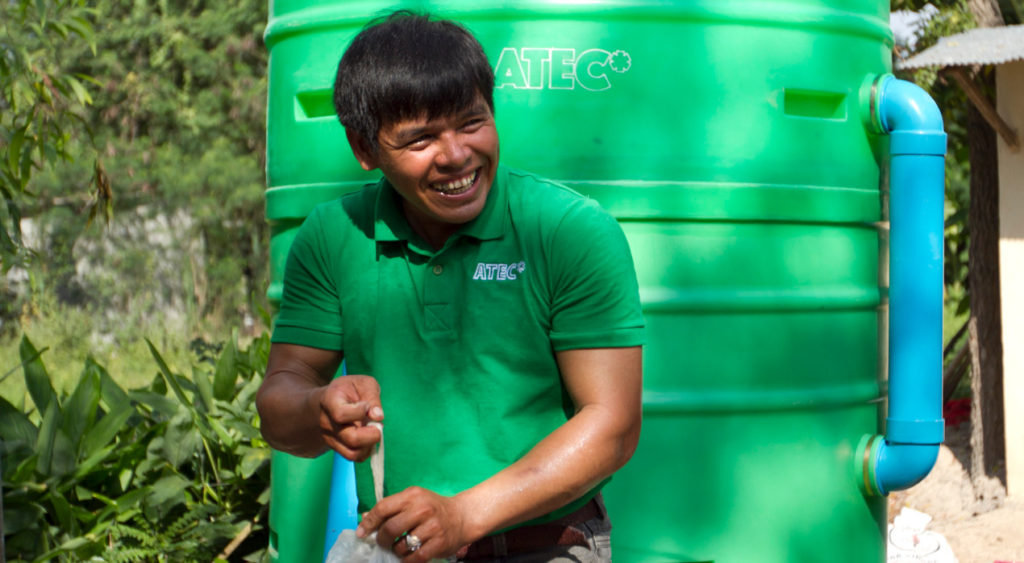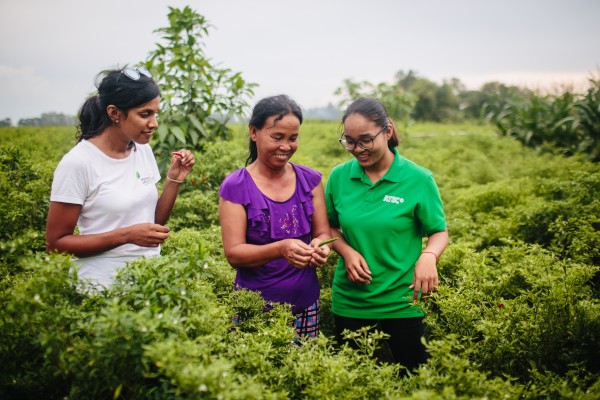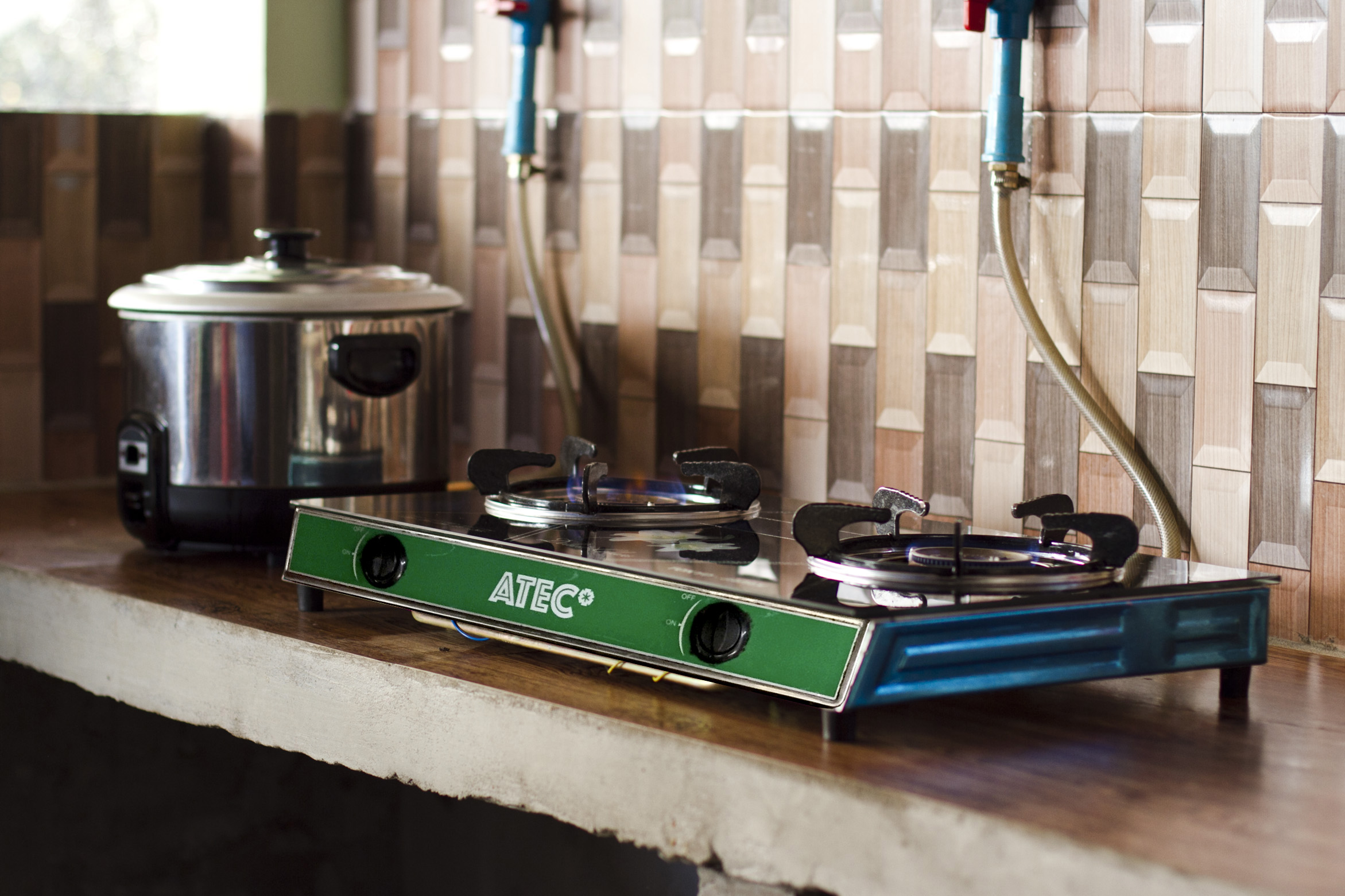From start-up to scale: An interview with ATEC Biodigesters CEO Ben Jeffreys

ATEC Biodigesters International (“ATEC”) is an Australian social enterprise that produces, sells and distributes the first commercially scalable biodigester in Southeast Asia. ATEC has also become the world’s first company to integrate a pay-as-you-go (“PAYGO”) consumer finance model with household biodigesters, allowing rural farmers to more easily access a technology that produces biogas as a clean cooking solution, as well as sustainable, organic fertilizer for agriculture.
A previous recipient of technical assistance and financial support from the Clean Cooking Alliance (“Alliance”), ATEC recently secured US $1.6 million in its Series B equity round. The company also announced its expansion from Cambodia to Bangladesh.
ATEC CEO Ben Jeffreys recently spoke with Peter George, the Alliance’s Senior Director for Private Sector & Investment, about what this funding and expansion mean for the future of the company.
This is the first in a series of conversations between the Alliance and industry leaders working in clean cooking around the world.
Peter George (Peter): Congratulations again on closing your Series B round. I’d be interested to hear a bit more about the transaction.
Ben Jeffreys (Ben): What this US$1.6 million equity financing allows us to do is to transition from startup to scale-up mode. We’re doing this by rolling out the world’s first patented PAYGO for biogas in Cambodia, setting up our new business unit in Bangladesh, and building out the international team for further expansion in the future through licensing agreements. This will put us on track to reach one million last-mile customers by 2030 with modern cooking and to make a significant impact toward the Sustainable Development Goals.
In early 2020, we are also looking to secure our first US$1 million in debt to expand our PAYGO model; 45% of this has already been secured by three investors. We will then increase this to US$5 million in the relatively near future.
Peter: Attracting investment for clean cooking businesses has, historically, been difficult. There is certainly a perception in the market that manufacturing or retailing more fuel-efficient biomass cookstoves, for instance, is not particularly profitable or scalable. How is your company different and how has it been able to overcome these perceptions and raise capital?
Ben: There are multiple reasons that our business model is different and that we were able to raise capital. Primarily, it has to do with our global potential, our scalable business model and how the integration of PAYGO enhances that scalability, and our strong corporate governance.
We see an evolution in the market from marginally improved products to modern, sustainable, aspirational solutions made possible through business-led innovation. We need to treat people as customers rather than beneficiaries. We must also ensure that we deliver value to consumers so that their usage of our product is sustained, and do so profitably so that we, as a company, are sustainable as well.
Peter: Now that you have closed this round, what comes next for ATEC?
Ben: Our goal now is to roll out PAYGO in Cambodia, as well as to expand into Bangladesh. Beyond that, we are looking at how, over the mid-term, we can package our products for distributors as a license agreement. This gives the dual benefit of empowering local businesses to make an impact through clean cooking, as well as giving us greater scale through lower costs and a streamlined business model.
Peter: There are many clean cooking companies seeking debt and equity investment to develop their products and grow their businesses. What advice would you give to the management of those companies?
Ben: My main advice is to speak to a lot of investors as early as possible. Once you’ve put forward your technology and model, ask them what issues they see within the business that you would need to solve if they were to invest. Go away and solve them. Then, come back to the same investor and show them the progress you have made.
One of our major feedback points was that investment in ATEC would be challenging without a patent. So, we went away and patented our system. Later, Series B investors flagged that relying on micro-finance institutions for consumer financing in Cambodia was a significant risk given regulatory changes, which led us to kick off PAYGO development. Sophisticated investors are skilled in identifying what’s wrong in your enterprise, and it’s your job to go away and solve those issues if you expect them to be confident about your company’s growth potential and therefore viability as an investment.
Peter: How do you see your business, and the clean cooking sector more broadly, developing over the next 5-10 years?
Ben: With ATEC, our 2030 goal is to enable over five million people to cook with modern, reliable biogas that helps both their households and the environment. To achieve this, we need to remove friction points in the scalability of customer acquisition, product, distribution, payments, and business model. We are optimistic that the corporate sector is well equipped to continue optimizing these elements over the longer term and, with some tweaks, we can ultimately apply their best practices to the underserved last-mile.
However, as great as reaching five million people would be, this is a drop in the ocean compared to the three billion who don’t have access to modern cooking. And unfortunately, many of these people don’t have the conditions to install a biodigester.
Therefore, ATEC will also be developing other green, modern, cooking technologies that can reach the last-mile market globally and bring the amazing health, time, and income benefits to the women in developing countries who need it most. For additional updates on our work, feel free to subscribe to ATEC’s mailing list and/or follow me on LinkedIn.


